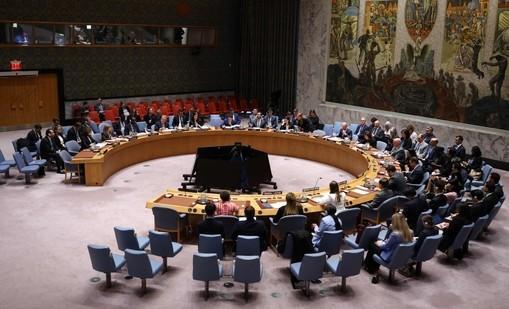
Was LeT involved? UNSC asks Pak on J&K attack, refuses to accept ‘false flag’ claim
The United Nations Security Council (UNSC) has refused to accept Pakistan’s claim that the recent Pahalgam attack in Jammu and Kashmir was a “false flag” operation, instead questioning whether the terror outfit Lashkar-e-Taiba (LeT) was involved in the attack. The UNSC members made these remarks during a closed-door meeting held at the request of Pakistan.
According to reports, some UNSC members questioned the likelihood of LeT, which is based in Pakistan, being involved in the attack. The terrorist outfit has a history of carrying out attacks in India, and its involvement in the Pahalgam attack would not be a surprise.
The Pahalgam attack, which took place on October 11, targeted a group of tourists and left several people injured. The attack has been widely condemned by India and other countries, with many calling for Pakistan to take immediate action to prevent such incidents in the future.
Pakistan, however, has refused to accept responsibility for the attack and has instead claimed that it was a “false flag” operation designed to tarnish its name. The country’s Foreign Office has released a statement denying any involvement in the attack and accusing India of trying to distract attention from its own internal problems.
However, the UNSC members were not convinced by Pakistan’s claims and instead questioned whether LeT was involved in the attack. Some members reportedly brought up the targeting of tourists on the basis of religion, suggesting that the attack was motivated by a desire to harm a specific community.
The UNSC’s refusal to accept Pakistan’s claims is a significant development, as it suggests that the international community is not buying into the country’s narrative. The UNSC has long been critical of Pakistan’s failure to take action against terrorist groups operating on its soil, and its refusal to accept responsibility for the Pahalgam attack is likely to fuel further scrutiny of the country’s actions.
The Pahalgam attack is just the latest in a long series of terrorist attacks carried out by Pakistani-based terrorist groups. In recent years, these groups have carried out a number of high-profile attacks in India, including the 2008 Mumbai attacks and the 2019 Pulwama attack.
The Pulwama attack, which was carried out by a group of terrorists affiliated with LeT, killed over 40 Indian security personnel and was widely condemned by the international community. The attack was seen as a major escalation in the conflict between India and Pakistan, and led to a significant increase in tensions between the two countries.
In the aftermath of the Pulwama attack, India launched a surgical strike against terrorist camps in Pakistan, and the country’s Foreign Minister, Shah Mehmood Qureshi, was forced to admit that Pakistan had known about the terrorist group’s plans in advance.
Despite this, Pakistan has continued to deny any involvement in the Pulwama attack and has instead accused India of trying to distract attention from its own internal problems. The country has also refused to take action against LeT and other terrorist groups operating on its soil, despite repeated demands from the international community.
The UNSC’s refusal to accept Pakistan’s claims on the Pahalgam attack is likely to fuel further scrutiny of the country’s actions. The international community has long been critical of Pakistan’s failure to take action against terrorist groups operating on its soil, and its refusal to accept responsibility for the Pahalgam attack is likely to fuel further pressure on the country to take action.
In conclusion, the UNSC’s refusal to accept Pakistan’s claims on the Pahalgam attack is a significant development, as it suggests that the international community is not buying into the country’s narrative. The refusal to accept responsibility for the attack and the failure to take action against terrorist groups operating on its soil are likely to fuel further scrutiny of Pakistan’s actions, and it is time for the country to take concrete steps to address these concerns.



